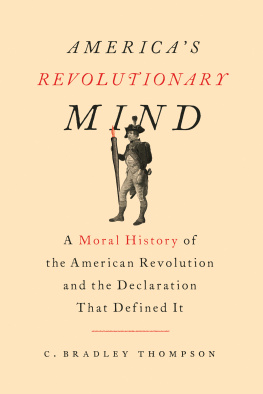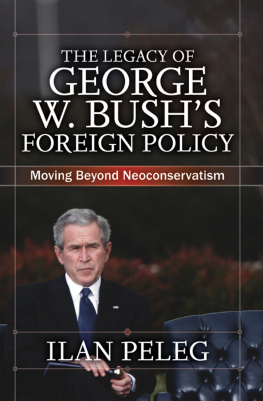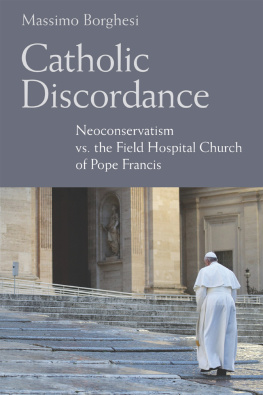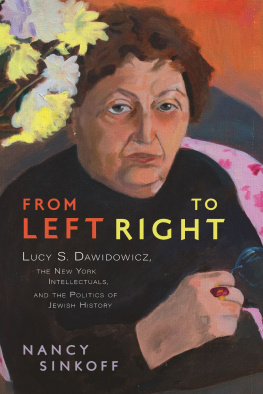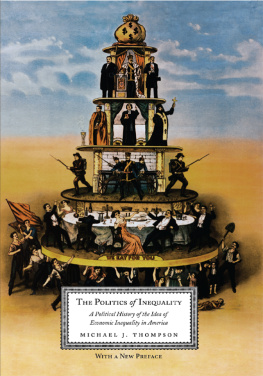First published 2010 by Paradigm Publishers
Published 2016 by Routledge
2 Park Square, Milton Park, Abingdon, Oxon OX14 4RN
711 Third Avenue, New York, NY 10017, USA
Routledge is an imprint of the Taylor & Francis Group, an informa business
Copyright 2010, Taylor & Francis.
All rights reserved. No part of this book may be reprinted or reproduced or utilised in any form or by any electronic, mechanical, or other means, now known or hereafter invented, including photocopying and recording, or in any information storage or retrieval system, without permission in writing from the publishers.
Notice:
Product or corporate names may be trademarks or registered trademarks, and are used only for identification and explanation without intent to infringe.
Library of Congress Cataloging-in-Publication Data
Thompson, C. Bradley.
Neoconservatism : an obituary for an idea / C. Bradley Thompson, with Yaron Brook.
p. cm.
Includes bibliographical references and index.
ISBN 978-1-59451-831-7 (hardcover: alk. paper)
1. ConservatismUnited States. I. Brook, Yaron. II. Title.
JC573.2.U6T46 2010
320.520973dc22
2010008512
ISBN 13 : 978-1-59451-831-7 (hbk)
ISBN 13 : 978-1-59451-832-4 (pbk)
Designed and Typeset by Straight Creek Bookmakers.
Cover photo: iStockphoto
Jacket design: Todd Lape / Lape Designs

This book is the culmination of a long intellectual journey that started when I was an undergraduate in college and first introduced to the ideas of Leo Strauss and Irving Kristol. Over the course of the last thirty years, I have experienced firsthand many of the ideas, policies, and postures described in this book, and I know personally many of the people whose names appear on these pages. This book is therefore written from the perspective of someone who was once associated with the Straussian school of political philosophy and, by default, with the neoconservative intellectual movement. I have studied and worked with many former students of Leo Strauss throughout my university career. I still have many friends and acquaintances who are Straussians in good standing, and I have come to know many neoconservatives over the years. I have learned a great deal from some of them, value their friendship, and, in some cases, admire their scholarly integrity and nobility of character. Indeed, they are among some of the best men and women I have ever known. This book is therefore written from the perspective of an insider.
I have always respected the intellectual seriousness that the Straussians and neoconservatives bring to studying the Great Books, and I have always admired their ability to identify the deepest moral and political challenges that confront our society. However, I have also always known that we ultimately share different philosophic and political principles, so despite the intellectual debt that I owe to many Straussians and some neoconservatives, I was never quite one of them. In many ways, therefore, this was not an easy book to write, at least not initially. From the beginning, I knew it would disappoint and even anger some of my friends and former teachers. It was with some reluctance and trepidation, then, that I set out on a journey to the center of that unique and complex intellectual world, and what I found there at first surprised and then ultimately disappointed me. Once fully revealed and understood, it became clear to me that I could not sanction such ideas and practices. This book is therefore written as a critical engagement with the neoconservatives in what Norman Podhoretz might call the breaking ranks tradition. My friends among Strausss followers who know that I have been working on this project know that I undertook this journey with honorable intentions. They also know that once set on the trail, I would not turn back.
Though the original motive for this book began as something of a personal mission to better understand the intellectual world in which I had been educated, it very quickly took on a much larger significance. In the years immediately after 2001, I also came to see a radical dichotomy between the neoconservatives political rhetoric and the actual policies they pursued. This dichotomy really came into focus during the administration of George W. Bush, in both its domestic and foreign policies. Ultimately, this is a book about America and its future direction. It was written during a time when neoconservative ideas and policies were ascendant and having a direct impact on American policy at home and abroad. Given the important intellectual and political role they have played in modern American culture, we owe it to ourselves and to our progeny to reflect on what the neocons thought, said, and didand what they might have planned for the future. I have concluded that neoconservative political thought is based on a comprehensive worldview that is, to paraphrase and flip an Irving Kristol expression, outside the American grain. Yaron Brook and I have written this book to alert Americansand especially those who value our nations founding principlesto the threat posed to this country by neoconservatism.
* * *
This book probably would not have been writtenor at least not as quickly as it waswithout the inspiration and wise counsel of several friends and colleagues. And although I am tempted to blame all its errors on my friends who should have known better than to encourage me to write it, I am, alas, responsible for its content. Eric Daniels, Robert Mayhew, Craig Biddle, Onkar Ghate, Steven Grosby, Michael Zuckert, Alexander Duff, and Justin Lesniewski read various parts of the manuscript and provided helpful and sometimes very critical comments. My Clemson colleague, Jeff Love, read several chapters, bled red ink all over them, and then pushed and probed over many wonderful lunches together. Yet another Clemson colleague, Brandon Turner, read and critiqued the entire manuscript just days before it went to press and made it better with his wise comments. Donna Montrezza did an excellent job of copyediting the entire manuscript.
Yarons chapter on neoconservative foreign policy benefited from the assistance of several people. Alex Epstein played a crucially important role in helping Yaron to develop the central arguments of the chapter, and Don Watkins provided valuable editing assistance. Yarons assistant, Kara Devar, kept him on task and provided important logistical support for our meetings around the country. Revital Brook, Yarons wife, must also be thanked for permitting Yaron to take all my urgent early-morning, late-night, and weekend phone calls.
I owe a very special thanks to my old friend Peter McNamara, who read an early version of the entire manuscript and who offered many helpful and sometimes stinging comments that challenged me to rethink many of my arguments and conclusions. Peter and I met on the first day of graduate school many years ago and have been good friends ever since, despite my having wandered off the reservation. Several other friends contributed to this book by indulging me in conversations and by asking tough and probing questions. Bradford P. Wilson and I have been discussing many of the ideas presented in this book on Friday evenings via e-mail (and a good claret) for over a decade. He surely will not agree with some of what is written here, but he certainly helped me to clarify and deepen my arguments. Vanni Lowdenslager has always asked tough and probing questions during my visits to her mountain home. I also profited from and enjoyed my conversations with Chris Tollefsen about the Straussian interpretation of Plato. Special thanks are due to the reviewers for Paradigm Publishers, including the distinguished political scientist A. James Reichley, who helped to improve the manuscript through their informed and probing questions. Lastly, I should like to thank my copilot on this project, Yaron Brook, who read the entire manuscript several times over, took countless early-morning and late-night phone calls, and took time out of his remarkably busy schedule to meet with me in different cities around the country to discuss our project. He also contributed a fabulous chapter to this book.


